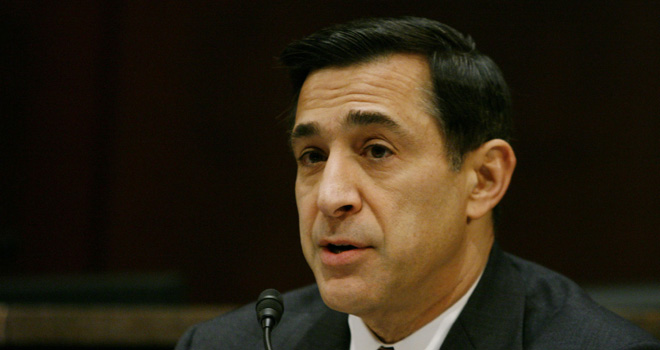The House Oversight Committee is holding a hearing this afternoon on the Hatch Act, a law intended to stop federal employees from engaging in partisan politics when they are on the taxpayer’s dime.
But Hill observers are having a tough time figuring out what exactly what Rep. Darrell Issa (R-CA) is getting at. He said in a statement that the committee was concerned with how the Hatch Act could be interpreted.
“The committee is concerned that the current version of the Hatch Act – while rightfully barring federal employees from using taxpayer-provided resources to engage in campaign activity – creates a confusing legal framework that frustrates compliance by well-meaning people,” Issa said in a statement.
“Similarly, ambiguities in the Hatch Act might allow partisan activists the statutory cover to violate the spirit of the law and thus defraud the American people,” Issa said.
Issa said the the Hatch Act “is due for more thorough congressional examination and possible reforms” in part thanks to the “technological innovations of the last decade” which “have provided tools that allow federal employees to easily circumvent the law and engage in prohibited activities with official resources.”
The hearing will feature testimony from two former Bush administration officials: Richard W. Painter and Scott A. Coffina, both former associate White House counsels. Painter told Politico’s Josh Gerstein that a March 7 meeting between Obama and about 20 Wall Street executives — which has drawn scrutiny because the invitations were sent out by the Democratic National Committee — is going to come up at the hearing. But Painter said he expects most of the hearing to focus on a recent report by the Office of Special Counsel, which found that the Bush administration violated the Hatch Act by giving political briefings to federal employees and by transforming the Office of Political Affairs (OPA) from an advisory office to the President into a campaign organization working directly for the Republican National Committee.
Overseen by Karl Rove, OPA dispatched cabinet officials to campaign for Republican candidates using taxpayer money ahead of the 2006 midterm election, the report found. The Obama administration subsequently abolished OPA and restructured their political operations by moving their political staff to the Democratic National Committee.
Government watchdogs were surprised by the desire to reform the laws on political activity, especially coming from Issa, who has criticized Obama many times for using government resources for partisan means.
“I hadn’t heard anything about anything dealing with the Hatch Act until this hearing came along,” Fred Wertheimer of Democracy 21 told TPM. “It’s not like there’s a movement out there to do something about the Hatch Act, at least I haven’t heard of anything.”
Wertheimer said that the Hatch Act was already changed to make it easier for government officials to get involved in politics. “I don’t know whether weakened or loosened was the right term, but this was back in the Clinton days,” Wertheimer said.
There have been only a few actions taken by the OSC on Hatch Act issues in recent years. In February, OSC filed a complaint against a former U.S. Attorney for the Eastern District of Pennsylvania who allegedly violated the Hatch Act by improperly soliciting subordinates to attend fundraisers at her home for Sen. Arlen Specter in January 2008 and for U.S. Rep. Patrick Meehan the following year.
Ana Galindo-Marrone, the Hatch Act Unit Chief at OSC, is also set to testify at the hearing this afternoon.






